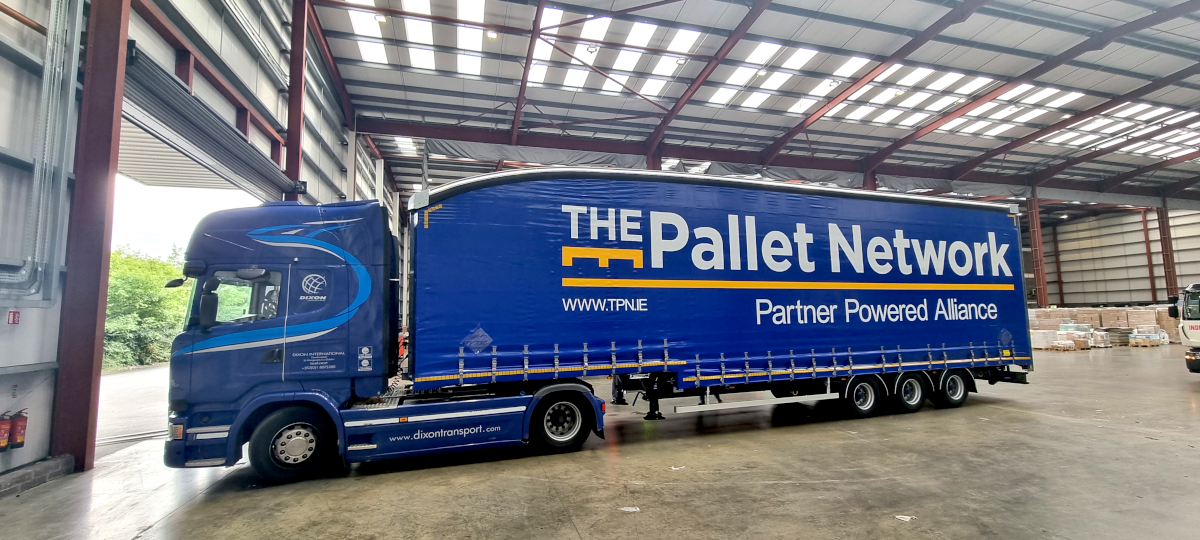Sat 26 Mar 2005 at 00:11
A number of Irish hauliers have recently banded together with an existing network of hauliers in the UK to offer an integrated road and sea freight system which reduces costs and is easier on the environment. JIM AUGHNEY reports on Pallet Network.
https://www.independent.ie/business/irish/new-network-is-making-deliveries-more-palatable-and-cost-efficient/25996813.html
PICTURE the scene. A haulier in Tipperary has varied goods to deliver to three addresses in Dublin on Tuesday and collect one item for return. He sets off early but as he approaches the capital at 7.45am, the traffic stretches in a long line from the Red Cow roundabout to Citywest.
He manages two drops by lunchtime, has to wait outside the third location until after 2pm and finds himself stuck in the Red Cow snarl-up at 4.30pm.
By the time he gets back to Tipperary, he has to deliver the goods from Dublin late in the evening before loading up for the next day when he again leaves even earlier in the morning to set out for Dublin.
For many years, this has been the lot of hauliers around the country. If they are located more than ‘an hour from Dublin’ – the city where the vast bulk of Irish freight is destined – they are faced with sitting in their cabs 13, 14 hours or 15 hours a day.
This is in contravention with the Working Time Act, not conducive to road safety and wasteful of resources.
Furthermore, it does not reward the haulier very much as he is paid on a basis of a unit of freight – the amount which can sit on a single pallet – and he is paid an agreed amount per pallet irrespective of the amount of time and effort he spends.
Fourteen hauliers and a Dublin logistics company have come together to get off this treadmill in an operation which is known as the Pallet Network.
To those outside the freight sector, pallets are the things you see on the back of trucks that farmers sometimes use to fill a gap in a hedgerow or to hold sheep together for shearing.
To those in transport, however, each pallet is a unit both of measurement and of payment.
“The Pallet Network is unique because it combines regional deliveries in Ireland with an internationally proven hub system for sorting goods close to the M50 in Dublin, which in turn is linked directly to over 70 depots in the UK mainland through a central hub in Leicester,” according to Seamus McGowan, managing director of the Pallet Network. Traditional methods result in many trucks criss-crossing the country either completely empty or with small loads.
“We can show examples where hauliers who have joined the Pallet Network have reduced vehicle movements by half at first and then by 75pc if they move to a double-decker trailer,” McGowan says.
By being part of a network, the local haulier can offer businesses next day delivery in Ireland and within-48-hour delivery in the UK and parts of Europe, Mr McGowan explains.
This increases his throughput going to Dublin, while the other hauliers in the Network bring him extra cargo for the return journey home.
All the bulk movements from the regional depots are done at night, arriving in Dublin after 10pm and leaving the Dublin depot before 2am when traffic congestion is lower. This results in a shorter working day for regional drivers. As the truck can be used again the next day for local deliveries, return on capital employed improves, Mr McGowan said.
The Pallet Network started last June handling fewer than 200 pallets per night. The 14 members now handle 600 pallets per night – a three-fold increase in just three months.
“It’s better for the environment to have one-third of the trucks travelling the main roads of Ireland, and it’s better for hauliers’ incomes to carry three times more pallets per journey,” he says.
Local hauliers involved in the Pallet Network include Breffni in the North-East, Connolly Roadfreight and AM in Northern Ireland, Rockall in Donegal, MCD in Cork, Autotrans in Limerick, Mullen in Sligo, and DHJ in the South-East.
Independent Express has the hub in Blanchardstown, and handles Dublin deliveries and collections.
They form part of a network of almost 100 depots in Ireland and UK which electronically monitors the freight’s movements.
“The road-freight sector cannot ignore the dangers posed by truck drivers working 15 or 16-hour days, five or more days a week. Network allows drivers to carry more goods in a shorter time-frame,” Mr McGowan says.

